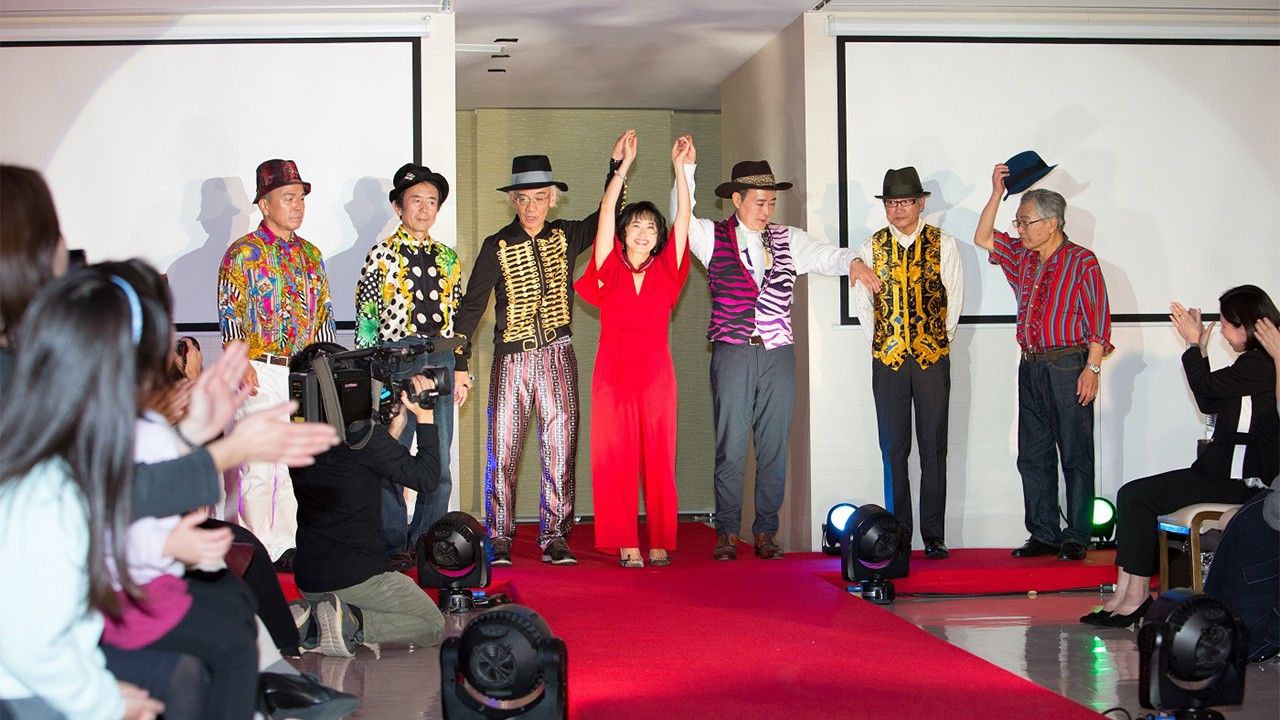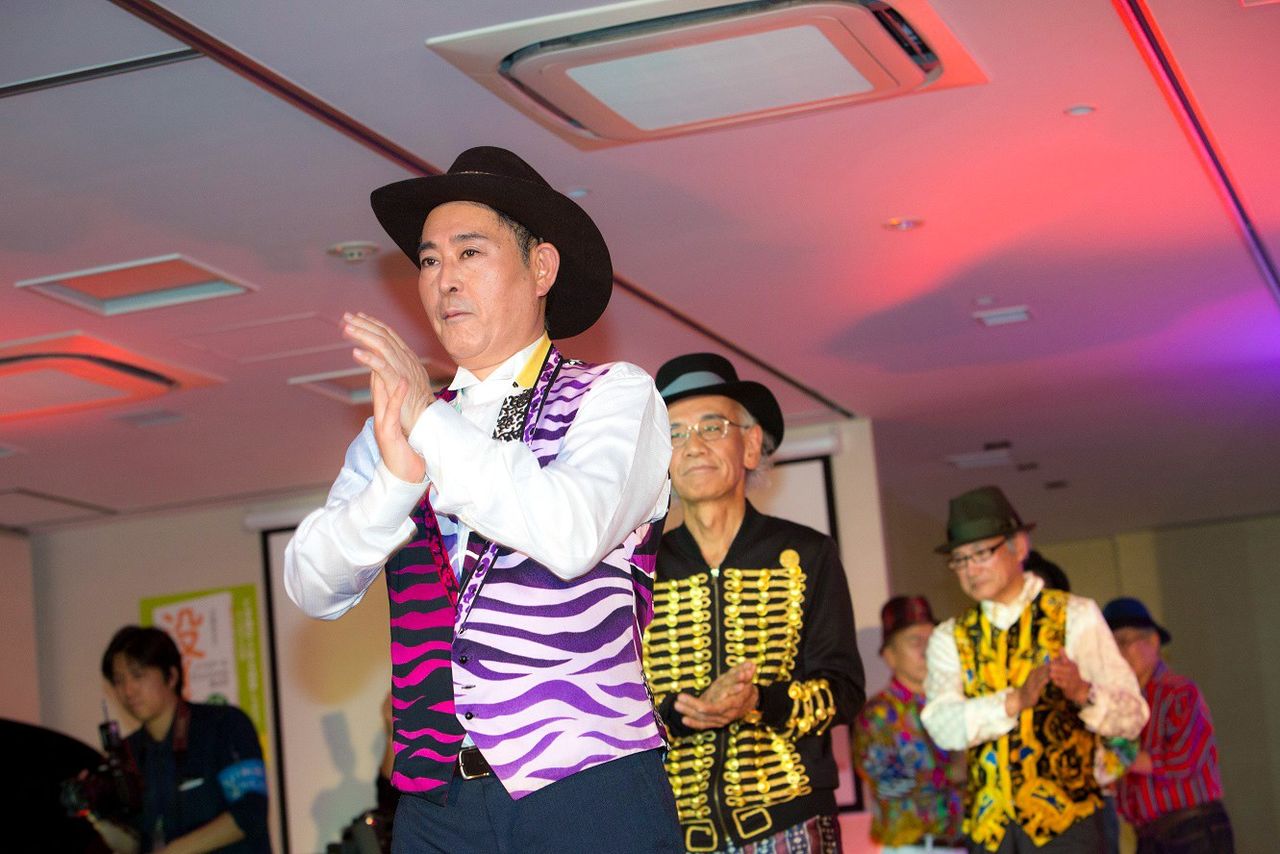
Life After Death: Post-Bereavement Isolation in Japan’s Aging Society
Society Culture Lifestyle Family- English
- 日本語
- 简体字
- 繁體字
- Français
- Español
- العربية
- Русский
Golden Years
In 20 years’ time, Japan will have one of the highest rates of elderly people in the world. This coupled with the country’s growing life expectancy has made the way senior citizens cope with the loss of a spouse a prominent social issue. In many cases when a husband or wife passes away, the surviving partner faces the stark reality of living out the remainder of their years in isolation. Japan urgently needs to find ways to support socially detached elderly to reconnect with society and enjoy a higher quality of life.
Over the last quarter century, the average amount of time elderly couples live together has increased by 10 years. National census figures from 1990 show that 56.6% of women aged 65 or over were widows compared to 40.1% who were still together with their husbands. By 2015, the ratios had reversed, with 38.7% of women in the age group being widows and 51.4% still married. Subsequently, widowhood increased for women aged 75 and over to 57.6% . The chief reason for the greater longevity of older couples is an increase in the life expectancy for men. In 1990, only 30.5% of men lived to 80, but by 2016 this had risen to 51.7%.
It used to be said that Japanese women could expect to enjoy a new lease on life when their husbands died. But today, greater male longevity has reduced the number of years widows can anticipate living in good health after their husband’s death. For instance, a friend of mine’s parents were both in their late eighties and living in separate elderly care facilities when the father died. The mother had advanced dementia, which persuaded my friend not to share the news out of concern for her mental state. The risk of dementia in women increases dramatically after age 80, and some research suggests that as many as 59% of women will show signs of dementia by the time they reach 85.
Widowers in Isolation
The changing structure of Japanese household over the last several decades has resulted in greater social isolation of senior citizens. According to the Ministry of Health, Labor, and Welfare’s Comprehensive Survey of Living Conditions Summary, in 1980, three-generation households accounted for 50.1% of Japanese residences where at least one person was aged 65 or older. However, by 2015, the ratio had fallen to 12.2 % compared to 31.5% of households made up solely of an elderly married couple. Traditionally, elderly parents would continue to live with their children and grandchildren, even after the death of a spouse. Today, though, a partner’s passing often means facing the difficult challenge of starting a new life alone.
This has had a considerable impact on men. As male life expectancy has increased, there has been a steady uptick in the number of widowers living alone. Many experts on aging point out that compared to their female counterparts, men often have a more difficulty adjusting to life after losing a spouse, particularly with regard to social interactions.
According to a 2017 National Institute of Population and Social Security Research survey, among people aged 65 or over who lived alone, only 49% of men talked to at least one person every day, compared to 62.3% of women. On average, 15% of men—around one in every six or seven—but just 5.2% of women spoke to someone less than twice a month.
Social withdrawal also extends to interactions with family members. A 2016 survey by Dai-ichi Life Research Institute showed that among seniors in their sixties and seventies living alone, 27% of widowers compared to 50.8% of widows spoke to family members at least once a week, and more than 40% of men spoke to relatives as seldom as once a month or even less. A quarter of the men surveyed did not even exchange greetings with neighbors.
Japan’s Lonely Seniors
The same survey showed that whereas 75.8% of widows living alone had friends of the same sex with whom they could enjoy tea or a meal, the figure for men was less than half—just 40.8%—and that as many as 33.6% of men had no male friends at all. In response to the question “Do you have a friend of the same sex with whom you can discuss problems or worries?” 54.8% of women and 25.2% of men answered yes. This illustrates the degree of isolation many men endure after their spouse dies. Often widowers do not even have friends to socialize or share hobbies with, let alone a person who they can share their concerns and frustrations with.
Incidentally, it was more common for men (59.2%) than women (44.8%) to have at least one friend of the opposite sex. However, this does not change the fact that many widowers have very few friends of either sex.
Isolation among the elderly is not limited to those who have lost a spouse. Data suggests that Japanese seniors on average have fewer friends than their counterparts in other countries. According to a 2015 Cabinet Office survey of people aged 60 and over in different countries, 25.9% of respondents in Japan said they had no one outside their immediate family they could turn to for advice or support in times of difficulty, compared to 11.9% in the United States and 8.9 % in Sweden. Similarly, nearly 60% of respondents in Sweden said they had friends of both sexes, while in contrast only 13.8% of those in Japan said they did.
Few Life Skills
One prominent issue is that many elderly Japanese men lack basic life skills needed for living alone. Men in their seventies or older came of age at a time when wives were expected to look after every aspect of home life, and as a result many older men never learned how to cook or do housework. According to one survey, more than 60 % of men in their sixties do not prepare their own evening meal even once a week. A male acquaintance of mine had never done chores in his life until the age of 70 when his wife passed away. Now that he lives alone, he prefers to eat out every night, even when he has nothing to keep him busy during the day. These outings to restaurants are preferable to him being cooped up at home all day. However, even when he prepares a meal like breakfast, he never actually cooks anything, but instead slaps together a simple cheese or ham sandwich with rudimentary ingredients bought at the local supermarket.
Another widower I know relies on his daughter to deliver his evening meals. While she is at work during the day, he travels to a nearby supermarket to buy a premade bentō for lunch. While seemingly a simple task, he says he finds the large number of choices overwhelming and that he struggles to decide what to buy. An inability to even choose what to eat is surprisingly common among older men, perhaps due to the fact that they spent their entire lives unquestioningly consuming whatever was set in front of them.
Fading Appetites
Women also face dietary issues following the death of a spouse. Many widows fall out of the habit of cooking regularly and instead prepare several days’ worth of meals at once, or reduce what they consume to the bare minimum. According to a 2016 Ministry of Health, Labor and Welfare survey on health and nutrition, 22% of women aged 65 and over had a body mass index of 20 or lower, indicative of poor nutrition; the ratio for women aged 85 or over was even higher at 34.3%. Overall, the percentage of elderly women with poor nutrition has increased over the past ten years. Women are more likely to live alone as they get older, and while the survey did not look specifically at this group, the findings suggest that even women who most of their adult lives cooked meals for their families may fail to get sufficient nutrition once they live alone.
Another change in recent years among widows is an increasing number of women opting for “posthumous divorces” to formally cut ties with their deceased husband’s family. In Japan, when a couple submit marriage papers at city hall, the newlyweds are joined in matrimony as well as legally to their partner’s family. These bonds come to an end in the case of divorce, but not if one partners dies. In marriages where the husband was the eldest son, it was traditionally assumed that the wife would be responsible for looking after the husband’s elderly parents and tending to the husband’s family grave.
However, a growing numbers of women are choosing to sever these ties to free themselves of the obligation of caring for their in-laws, arguing it was their spouse they married, not the entire family.
Building Second Lives
My husband passed eight years ago, and the experience inspired me to create an association for bereaved spouses made up of students and alumni of the Rikkyō Second Stage College, a school for people aged 50 and over founded by Rikkyō University. The idea is that rather than spend the rest of our lives in mourning we should strive to enjoy the time we have left, for the sake of ourselves and our deceased partners.
One event we organized was a fashion show for older widowers. As I noted above, it is easy for this group to become socially isolated. The idea behind the show was that giving the men an affordable way of taking an interest in fashion and their appearance might give them more incentive to get out of the house and enjoy socializing again.

Widowers take part in a fashion show.
In contemporary society, it has become the norm for elderly couples to live apart from the rest of their families into old age. This can easily lead to isolation and loneliness when one partner dies. As we move toward a society where greater numbers of elderly people live alone, we surely need to do more to help seniors build and retain their social networks so as to enjoy richer lives while they are still fit and healthy.
(Originally published in Japanese in February 2019. All photos courtesy the author. Banner photo: A fashion show for widowers held at Buddhist temple Kōbōji in Mita, Tokyo in December 2018. )
Funeral elderly lifestyle family elderly people senior citizens death life expectancy